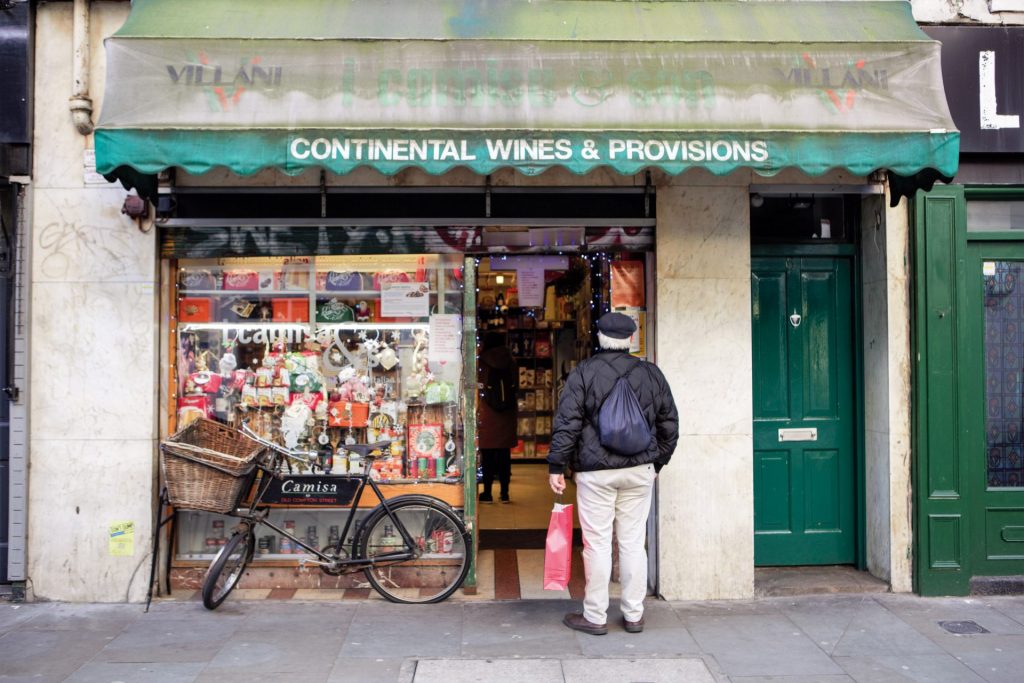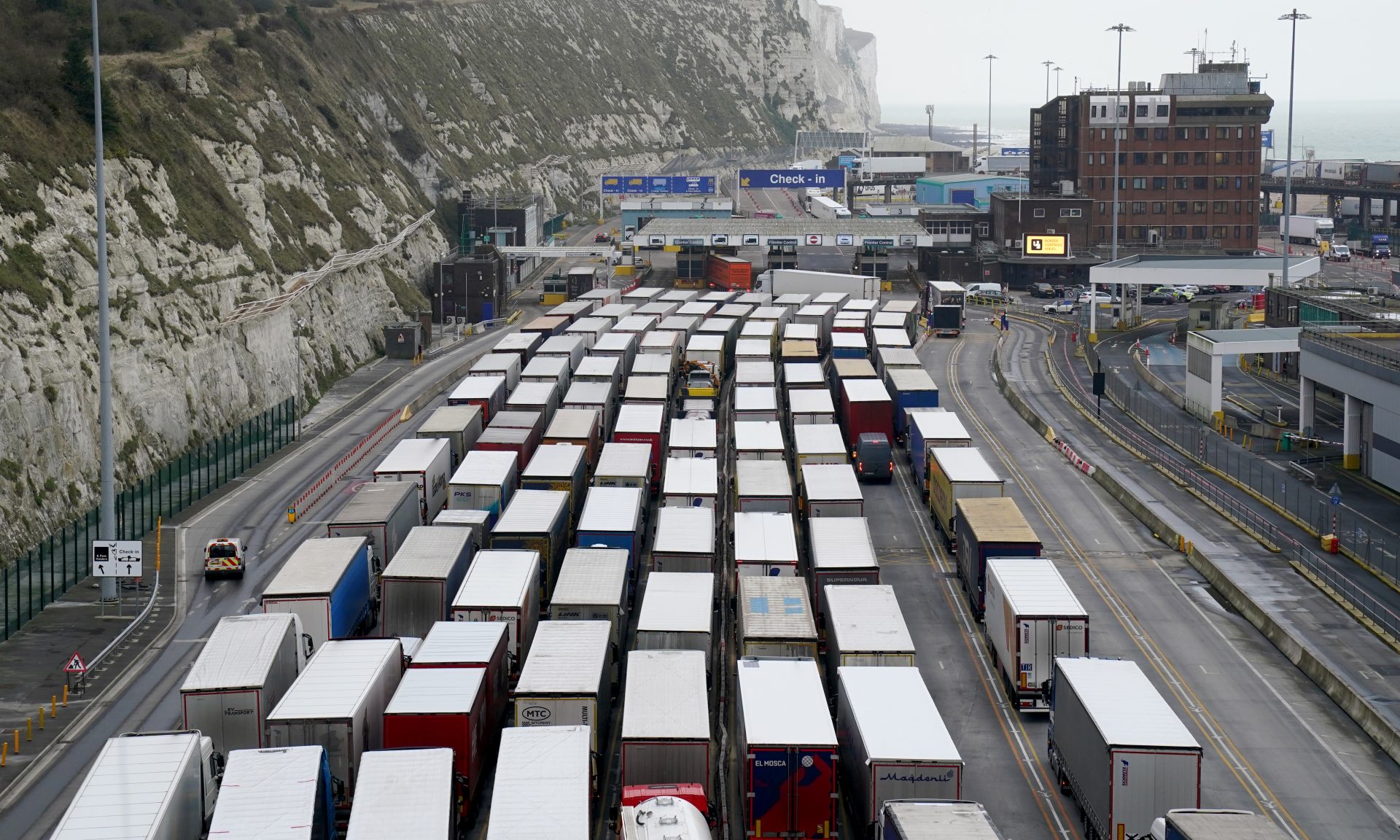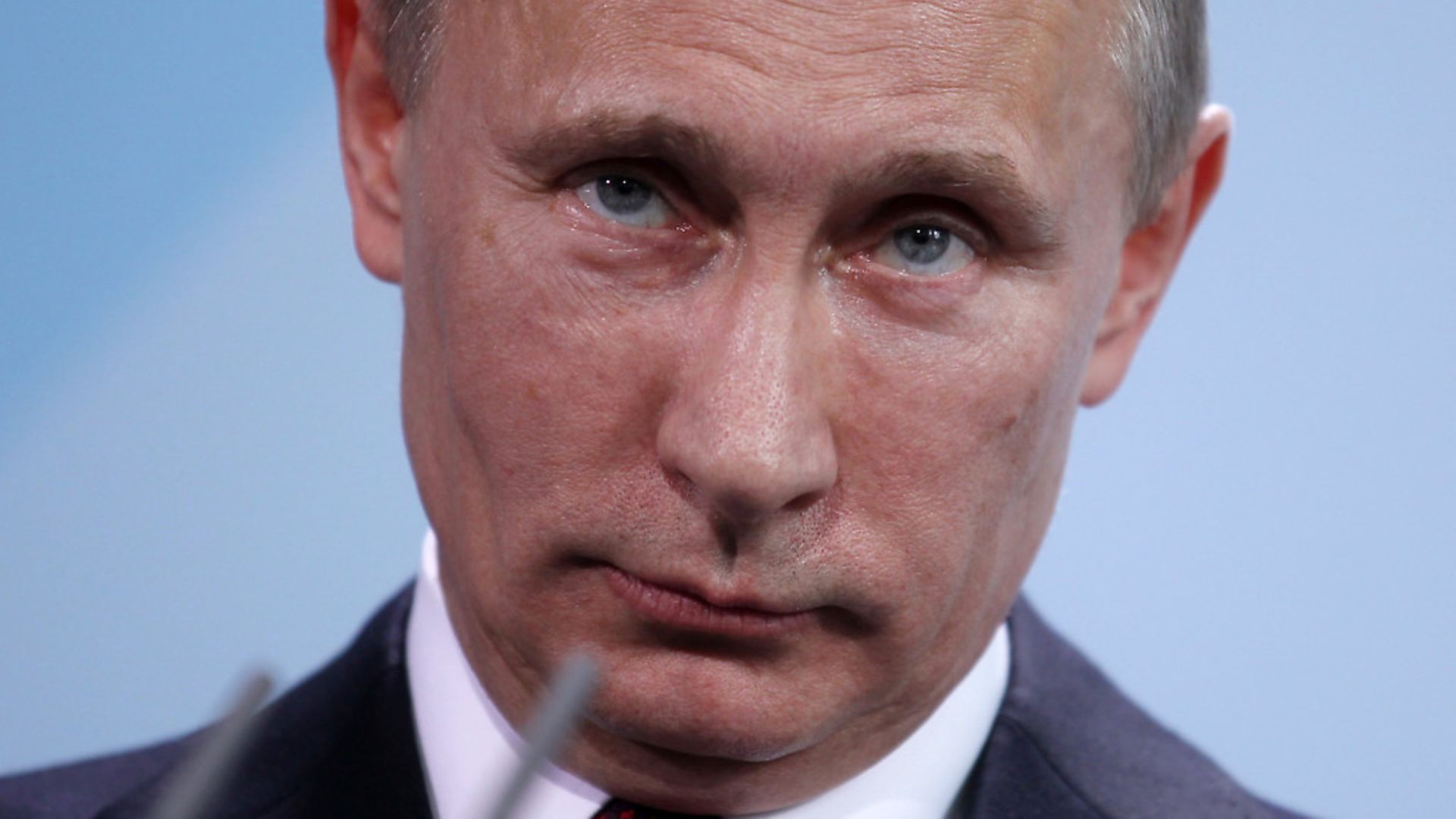Bring your own booze” might be the four-word phrase currently occupying Westminster, but there’s another that might prove equally fatal for Boris Johnson.
It is the damning judgement of Philip Rycroft, former permanent secretary at the Department for Exiting the EU, that many British businesses may simply give up on foreign imports as “not worth the hassle”, with devastating consequences to the UK economy.
What has made it too much bother to bring goods into the UK, the fifth-largest economy in the world, a huge market of 67 million people? Look no further than the British government.
And while it scrambles to defend itself over Downing Street parties, the damage to British business is already being done, with barely any of the media coverage it deserves.
This is damage that will be affecting us all long after the fizz of Partygate has gone flat.
From January 1, Britain began introducing all the checks, barriers and red tape that leaving the EU entails for importers into the UK.
Already we are starting to see some of the effects: lorries waiting up to eight hours at Calais to clear customs; problems with new IT systems governing the movement of goods across the border; and acute problems for certain specialist sectors. Take delicatessens, for instance, reliant as they are on the import of foreign food. They are facing chaos as both prices and supply are dramatically affected.
Many larger firms will manage the changes and absorb the costs, and many others will have teething problems with the new rules, but ultimately come to terms with them.
But many others will just stop, because the game is no longer worth the candle.
Why is this happening now, two years after we officially left the EU and a year after the end of the transition period?
Because the UK government, having had five long years to prepare and insisting that the deal just had to be done, was simply not prepared for Brexit and so kicked many of its provisions down the road.
But the days of reckoning are now upon us; new rules are either here or on the way later in 2022, and so all the damage inflicted by red tape in the first year of Brexit – when a fifth of small British businesses decided exporting to the EU was, to borrow a phrase, “not worth the hassle” – looks like being just a taster for what is to come.
It is still too early to tell exactly how the new rules are hitting importers. Many will have stockpiled goods (yet again) and trade in the New Year is always at its quietest. But the early signs do not look good, and the new rules and costs are now fixed in place and are permanent.

Three main types of new rules started being introduced on 1 January. They are imposing the checks that the EU imposed on UK exports from day one of Brexit but which the UK has so far avoided; new red tape on all food and drink trade, and Rules of Origin.
Until now the UK border authorities have hardly bothered checking incoming goods from the EU. So, throughout 2021 goods and trucks were waved through the UK’s borders, and firms had months in which to fill in the forms and pay any tariffs or VAT.
That’s now changed. All van and lorry operators, foreign and domestic, must register with the Goods Vehicle Movement Service for a goods movement reference number, without which it will be impossible to move through a UK port. From May, they will also need a new international operating licence if they want their drivers to travel back and forth from the EU; yours for just over £1,000.
Also, firms now must have all paperwork ready on the day their load crosses the border between the EU and the UK, and pay any taxes or tariffs due. If forms are complete and money not paid then goods will in most cases not be allowed to leave the port.
These rules were introduced on the EU side of the border at the beginning of 2021. Strangely enough the “failing and sclerotic behemoth” – copyright N. Farage – managed to prepare for the new border in time. Unlike Global Britain. Now the UK government says its own systems are ready and robust. Many in the logistics sector have doubts about that.
British industry has long and painful memories of failed government computer systems, and already food importers are furious they are having to manually input data for each shipment, as software to automatically upload it is still some months away from going live.
The potential problems won’t be helped by the lack of knowledge or preparedness of small firms in the UK, those most likely to throw in the towel and give up on international trade.
At the beginning of December, a Federation of Small Businesses survey found one-third of its members hadn’t even heard of the new rules, until asked about them in the survey.
On top of those problems, the UK’s agriculture and food industries (the country’s largest manufacturing sector) must deal with the full introduction of rules on sanitary (in regard to meat) and phytosanitary (in regard to fruit and veg) standards.
These cover food products and have meant pre-checking of imports since the start of this year. From July, they will also need Export Health Certificates and there will be physical checks at Border Control Posts.
All this comes on top of the hit the industry has already taken. Latest figures show UK food and drink exports to the EU have fallen by a quarter since 2019, at a cost of £2.4 billion, with smaller firms suffering the most.
The figures for individual countries are even worse; exports of food and drink to Germany fell 44.5% and exports to Spain halved, and the industry expects these new rules to hit sales further.
So far, so grim. But the biggest problem for British industry comes with the introduction of tough new regulations on Rules of Origin.
These are designed to make sure businesses cannot just import something into the UK, stick a Union Jack label on it and re-export it to the EU free of tariffs.
So, let’s assume a Canadian axe maker tries to get around tariffs on Canadian axes by exporting the heads and the handles to the UK and just putting the two together in a small UK factory. The Rules of Origin would show that not enough of the axe originated in the UK; it is therefore Canadian and would attract the appropriate tariffs.
The rules vary from industry to industry and product to product but the onus is on firms to prove that their products were mainly produced in the UK. Many firms will now have to collect the data to prove they can export tariff-free or collect it and suddenly discover they can no longer export to the EU without tariffs.
We can predict what is likely to happen, because many of these rules that the UK is now introducing have been in place on the EU side for a year.
The Centre for European Reform (CER), which models UK imports and exports against similar countries to measure the Brexit effect, has found that UK goods trade is already almost 16% lower than it would have been without Brexit.
The UK services sector figures are very similar. Recent figures from the ONS show UK services exports globally were down about 14% in the 2nd Quarter of 2021 compared with the same quarter in 2019. The equivalent figure for EU exports over the same period is close to 30%.
The difference between the Global drop and the EU drop illustrates very clearly that Brexit has done even more harm to the UK economy than Covid, yet with barely any of the headlines.
Much of that collapse in trade came about because many firms, especially small- and medium-sized businesses which happily traded across the EU before Brexit, gave up. If many firms thought the Brexit red tape introduced in 2021 was enough to stop them from exporting, many more are going to find the same thing in 2022, not only with exports but also with imports.
Finally, we know many British firms decided during 2021 to just pay tariffs on their exports to the EU. Every single one of them was entitled to zero tariffs, but had to fill out forms to claim that right. So 10% ended up paying the tariffs, having decided it was cheaper and easier for them to pay taxes than to fill out the forms. The same is likely to happen for EU firms now when they are exporting to the UK.
But whether they pay the extra taxes or waste time and money filling in forms and preparing for checks at the border themselves, the end result will be the same. If they can be bothered to trade with the UK, they will just take the added costs and pass them on to their customers in the UK, pushing up prices and inflation.
We can, therefore, expect further substantial hits to exports to and imports from the EU, even if the new systems work perfectly, and real problems to the supply chain if they do not.
Industry experts believe that if the border is under threat of grinding to a halt the UK government will back down and delay the introduction of the new rules and regulations yet again. But even if it does do that, much of the damage has already been done.
Adam Posen, the eminent American economist and formerly a member of the Bank of England’s Monetary Policy Committee, has described Brexit as a trade war, but a war the UK has declared on itself.
The UK is forcing self-inflicted defeats upon its exporters, service and manufacturing sectors and economy, time and time again, with no victories to offset the losses.
The government is intent on putting red tape, costs, checks, taxes, rules and regulations in the way of British business.
We have only seen the first tranche. This year there are even more, and the consequences are obvious and inevitable. And, for many, tragic




